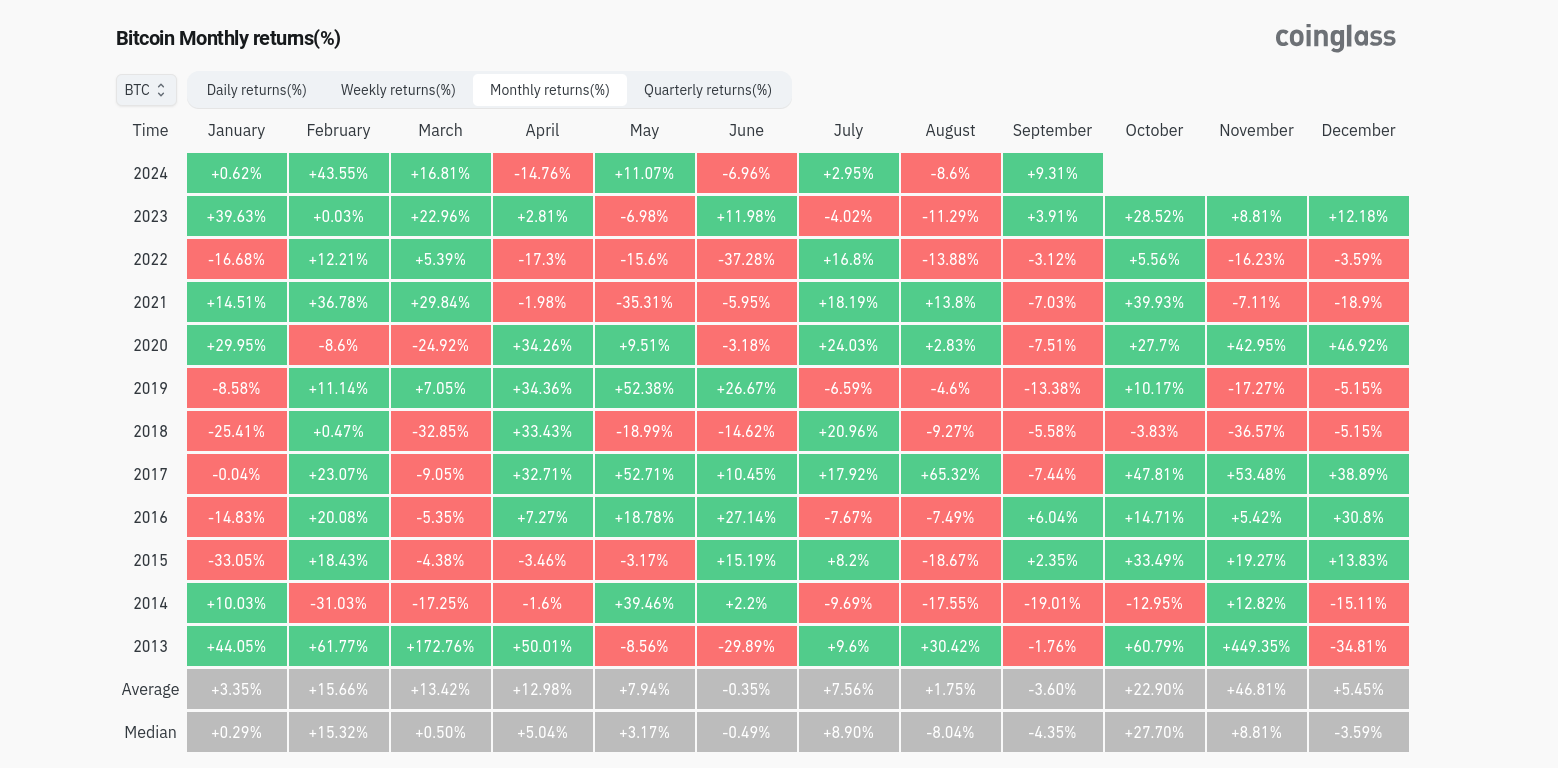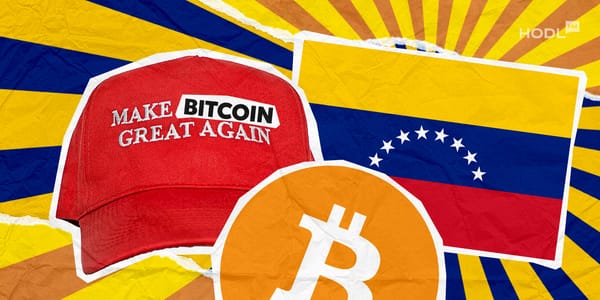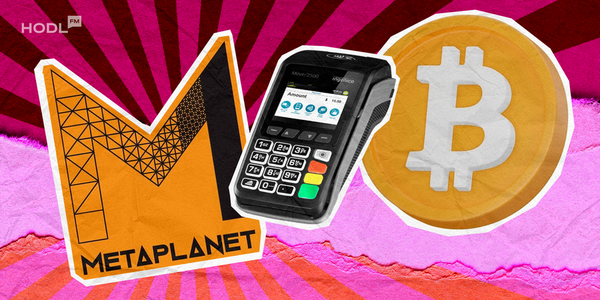Surprising everyone, Bitcoin wrapped up September with an unusually optimistic 9% gain, as expectations for further BTC price growth are rising. A bit of a sell-off at the end of the week still left Bitcoin holding onto most of the support it regained earlier. Forecasts for October are even more upbeat, with 23% price increase predictions. But what hints at such optimistic growth, and what could cloud these expectations?
Bitcoin closing September in positive returns signals the start of its historically very strong "up season only":
— BitcoinHyper (@BitcoinHypers) September 28, 2024
Uptober -> Moonvember -> Pumpcember
I don’t make the rules - the data does. Numbers don’t lie!
I hope you're ready... pic.twitter.com/NWmDLzDOlc
Bitcoin is Having Its Best September Ever
Over the past 10 years, Bitcoin has typically ended the month down by an average of 3.6%, but this year, it's up by about 9%. The data from the monitoring resource CoinGlass confirms this. There's a stark contrast between 2024 and the usual September for Bitcoin.

As we move forward, October, affectionately known in crypto circles as "Uptober" for its historically impressive market performance, is just around the corner. CoinGlass shows the challenge for BTC/USD next month — an average increase of nearly 23%.
From current levels, that would mean a new all-time high, something commentators believe is entirely within reach.
Crypto trader, analyst, and entrepreneur Michaël van de Poppe predicts that altcoins are poised for 3-5x growth, while Bitcoin is likely to break its all-time high in the next quarter.
Final day in Thailand, just before Q4 kicks off.#Altcoins are ready to do a 3-5x run, while #Bitcoin is likely to break the all-time high coming quarter, following Gold.
— Michaël van de Poppe (@CryptoMichNL) September 28, 2024
Good times are ahead.
But it's not just CoinGlass metrics fueling our optimism. Even something as minor as an uptick in downloads of the Coinbase app historically signals strong bullish sentiment.
A chart of Coinbase App ranking on the apple iOS store.
— bitcoindata21 (@bitcoindata21) September 18, 2024
Pink line = daily ranking
Black line = 7 day moving average
Red line = no.1 on app store
Green line = no.175 (above this is bullish sentiment)
Just like the previous cycle, the green line was not tested until all time highs… pic.twitter.com/Qa0oy6Wwnh
On September 28th, the Coinbase app hits the top 400 rankings on Apple’s App Store. Research shows that once it hits the top 200, the bull market usually kicks into high gear.
But there's one big, fat "however" hanging over all the optimistic October price predictions — the rising tensions in the Middle East.
How the Middle East Conflict Could Impact Bitcoin’s Price?
A major escalation in the conflict between Israel and Lebanon, following shocking pager attacks on Hezbollah and the assassination of its leader, Hassan Nasrallah, signals that bigger regional players like Iran and the U.S. might get involved. If the violence escalates into a larger war, it could disrupt oil supplies and other resources, increasing uncertainty in global markets.
India's market downturn (with a Rs 3.55 lakh crore drop) shows that markets are reacting to the potential for conflict escalation. If tensions continue to rise, similar reactions can be expected in other global markets. Stock indexes might experience volatility, and this is often accompanied by a heightened interest in decentralized assets like Bitcoin.
The Middle East is also a critical player in the oil market, and any disruption to energy supplies could push oil prices higher. This could worsen inflation and intensify the global economic crisis, sparking more interest in alternative assets (read crypto).
That said, a regional armed conflict doesn’t automatically spell disaster for the entire market. Strangely enough, Bitcoin may actually be one of the few assets that could come out of this stronger. While the broader market might shake, there’s little reason to worry about Bitcoin during Middle Eastern tensions. If anything, it could thrive as “digital gold,” benefiting from the uncertainty and offering investors a haven in times of conflict.

Disclaimer: All materials on this site are for informational purposes only. None of the material should be interpreted as investment advice. Please note that despite the nature of much of the material created and hosted on this website, HODL FM is not a financial reference resource and the opinions of authors and other contributors are their own and should not be taken as financial advice. If you require advice of this sort, HODL FM strongly recommends contacting a qualified industry professional.





